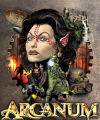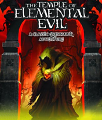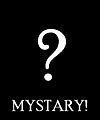 |
||||||||||||||||||||||||||||||||||||||||||||||||||||||||||||||||||||||||||||||||||||||||||||||||||||||||||||||||||||||||||||||||||||||||||||||||||||||||||||||||||||||||||||||||||||||||||||||||||||||||||||||||||||||||||||||||||||||||||||||||||||||||||||||||||||||||||||||||||||||||||||||||||||||||||||||||||||||||
 |
||||||||||||||||||||||||||||||||||||||||||||||||||||||||||||||||||||||||||||||||||||||||||||||||||||||||||||||||||||||||||||||||||||||||||||||||||||||||||||||||||||||||||||||||||||||||||||||||||||||||||||||||||||||||||||||||||||||||||||||||||||||||||||||||||||||||||||||||||||||||||||||||||||||||||||||||||||||||
|
||||||||||||||||||||||||||||||||||||||||||||||||||||||||||||||||||||||||||||||||||||||||||||||||||||||||||||||||||||||||||||||||||||||||||||||||||||||||||||||||||||||||||||||||||||||||||||||||||||||||||||||||||||||||||||||||||||||||||||||||||||||||||||||||||||||||||||||||||||||||||||||||||||||||||||||||||||||||
|
||||||||||||||||||||||||||||||||||||||||||||||||||||||||||||||||||||||||||||||||||||||||||||||||||||||||||||||||||||||||||||||||||||||||||||||||||||||||||||||||||||||||||||||||||||||||||||||||||||||||||||||||||||||||||||||||||||||||||||||||||||||||||||||||||||||||||||||||||||||||||||||||||||||||||||||||||||||||
|
||||||||||||||||||||||||||||||||||||||||||||||||||||||||||||||||||||||||||||||||||||||||||||||||||||||||||||||||||||||||||||||||||||||||||||||||||||||||||||||||||||||||||||||||||||||||||||||||||||||||||||||||||||||||||||||||||||||||||||||||||||||||||||||||||||||||||||||||||||||||||||||||||||||||||||||||||||||||
|
||||||||||||||||||||||||||||||||||||||||||||||||||||||||||||||||||||||||||||||||||||||||||||||||||||||||||||||||||||||||||||||||||||||||||||||||||||||||||||||||||||||||||||||||||||||||||||||||||||||||||||||||||||||||||||||||||||||||||||||||||||||||||||||||||||||||||||||||||||||||||||||||||||||||||||||||||||||||
Ben Houge on the Arcanum SoundtrackMirrored from here, posted December 29th, 2008is sophisticated enough to pass muster on its own as an extended string quartet." --Melinda Bargreen, The Seattle Times Notes on the Sessions Soundtrack Credits Comments on the Music Notes on the SessionsThe score to Arcanum is my most significant soundtrack project to date, comprising more than 50 minutes of music in total. The soundtrack is scored for string quartet, with additional percussion on two tracks, plus two ambient pieces performed on synthesizers. The string quartet portion was performed by members of the Seattle Symphony and recorded in June 2000 at Studio X in downtown Seattle, where other local ensembles such as Pearl Jam and Soundgarden have been recorded, not to mention the Spice Girls and plenty of film soundtracks. The entire Arcanum soundtrack is available for free download from Sierra's Arcanum page. Several tracks were included on the CD-ROM that accompanied the May 2001 issue of Computer Gaming World. If you've downloaded the Arcanum soundtrack and would like to burn a CD, here's a CD cover in Word format for your convenience. Of course, you should feel free to rearrange the tracks into any order you prefer. In a first of its kind promotional move, Sierra also posted the sheet music for the Arcanum soundtrack on the official Arcanum site (scores are also mirrored on this site). The scores can be viewed and printed using the Finale NotePad application, available free from Coda Music. When printed out, the scores look identical to the originals. The program also allows you to listen to the scores using your sound card's MIDI playback capabilities. A full score is presented for following along with the recordings, and individual string parts are available for performance. A concert performance of the music from Arcanum may consist of all or any subset of the 18 string quartet pieces in any order, and may be titled Music from Arcanum (musica arcana). If anyone decides to perform this music, please let me know; it would be great to hear of these scores being put to good use! Additional information about Arcanum is available throughout this site, including photos from the sessions and press reviews. Sierra's official Arcanum site contains screenshots and lots of other information about the game, including a free patch that fixes some bugs and adds some cool new features. Original Computer Game Soundtrack Music Composed by Ben Houge Leonid Keylin, violin I Kathy Stern, violin II Vincent Comer, viola Susan Williams, cello Evan Buehler, marimba on "Qintarra" Ben Houge, djembe and rainstick on "Qintarra;" synthesizer on "The Wheel Clan," "The Void," and "Kerghan's Castle" Recorded and mixed by Sam Hofstedt and John Burton at Studio X, Seattle, WA. Percussion overdubs recorded by Mike Caviezel at Sierra Studios, Bellevue, WA. Synthesizer tracks recorded by Ben Houge at Sierra Studios, Bellevue, WA. Remixed and digitally edited by Ben Houge and Mike Caviezel. Soundtrack produced by Ben Houge and Jeff Pobst. (P) 2000 Sierra Entertainment (BMI). All rights reserved. I spent most of the year 2000 working on Arcanum, and it ended up becoming an immensely personal project for me. Since I'm a staff composer and sound designer at Sierra, my involvement with Arcanum was not limited to composing the music; I also designed a lot of the sound effects and helped edit the dialog. This means that I spent a lot more time on the project, almost a full year, than might have been the case if I had only been commissioned to write the score. So it's not surprising that after investing so much of my time into this project, Arcanum is very special to me. Point of departure: The first thing I was told about Arcanum was the central conflict of the game: magic versus technology. This idea was so interesting and unique that I considered carefully how to best reflect it in the music. I presented a couple of ideas to the guys at Troika, and we finally settled on a sort of musical anachronism: a score centered around the styles and textures of Renaissance, medieval, and early music, but performed by a characteristic ensemble of the Victorian era, the string quartet. This dichotomy is most evident in the main Arcanum theme, but it shows up more obliquely in the chant-like melodies and motives that recur throughout the score, as well as in the texture and motion of the individual parts. (For example, notice the main theme of "The Caladon Catacombs" and the "Towns" music.) In my writing, I've avoided the virtuosic ornamentation and extremes of tessitura that characterize much Romantic-era string quartet literature, turning instead to the counterpoint and phrasing of early polyphony. Obviously, some of the pieces stray from this original conception, usually for dramatic reasons, but it served as a fruitful point of departure. The Arcanum score is indebted to the Kronos Quartet's Early Music album, which includes early music transcribed for string quartet alongside contemporary compositions that share an esthetic kinship with early music. I also remember being inspired by some of Philip Glass' comments regarding his new score to the classic 1931 film Dracula, in which he stated that he chose a string quartet to evoke the film's close, Gothic environments. A small ensemble can be appropriately moody, intimate, unobtrusive, and ambiguous; and strings are capable of a wide range of delicate instrumental colors. It might even be argued that a small ensemble works better for the personal, one-on-one experience of a computer game, contrasting with an orchestral score in the large, public space of a movie theater. It didn't hurt that hiring a string quartet is significantly cheaper than hiring a full orchestra, while the warmth resulting from an acoustic recording is vastly preferable, in my opinion, to another MIDI orchestra soundtrack. Themes: A typical computer game contains about the same amount of music as a feature film. However, in a game as large as Arcanum, you hear much more of that music than you would in a film, because the same 45 minutes of music now underscore 60 hours of drama instead of two. As a result, a game often requires writing a greater number of unique themes, rather than reworking just a few main ideas. (This is not to imply that coming up with new ideas is more difficult than creatively developing existing themes; indeed, the opposite is probably true.) In any case, there are some recurring themes in Arcanum, which I'll now point out. The main Arcanum theme masquerades as a waltz in the opening blimp movie ("The Demise of the Zephyr"), and shows up again at the beginning of the banishment movie ("Battle at Vendigroth"). It also underscores Preston Radcliffe's final words as he commits his ring to your care ("Radcliffe's Commission"). The Vendigroth theme, heard during the banishment movie ("Battle at Vendigroth") recurs as the main theme of the "Vendigroth Wastes" when you visit the site of the battle centuries later. The plodding, cyclic, mechanical music for "Tarant," Arcanum's largest city, is not literally reused anywhere, but it's similar in texture to the "Cities" theme, heard in lesser cities. The music for Caladon combines this "cities" texture with a more rural theme, evoking the "Villages" music, to reflect the fact that Caladon, while a large city, still retains elements of its old feudal government. One very important aspect of Arcanum is that the player may choose to follow a path of good or evil. For this reason, I purposefully avoided writing a sweeping, heroic title theme. Instead, I tried to make the theme morally ambiguous, almost tragic (for Arcanum can be a world of hardship), yet epic (which truly describes the vast scope of Arcanum). I've tried to suggest several things without committing to a single interpretation. I also think a slower, more pensive theme is appropriate to the thoughtful nature and pace of a role-playing game. Favorite moments: In writing over 50 minutes of music for Arcanum, I do have some favorite moments. In addition to the main theme, I'm fond of the music for the opening blimp movie ("The Demise of the Zephyr") and the restatement of the main theme when Radcliffe gives you his ring ("Radcliffe's Commission"). I also like the ambient, contemplative pacing of the "Wilderness" music; getting the timings of the silences just right was harder than writing the individual phrases! It may interest some gamers to observe that the music for Tarant is bi-modal; for most of the piece, the cello and viola are in A phrygian (with B flats), while the violins play in A aolean mode (with B naturals). I enjoy Tulla for its change of texture, allowing each instrument to take a solo turn. I'm also fond of the "Villages" theme and the battle music ("Battle at Vendigroth"). Inspirations: I listened to and derived inspiration from a wide range of music in the course of this project. If you enjoy the music from Arcanum, you may also appreciate some of the following pieces, which were influential either directly or obliquely: Kronos Quartet, Early Music John Corigliano's soundtrack to The Red Violin Franz Schubert, Death and the Maiden (as performed by the Brodsky Quartet) George Crumb, Black Angels (also by Brodsky, on the same CD as the Schubert) Beethoven, the complete string quartets (as performed by the Emerson Quartet) Both of Aaron Jay Kernis' string quartets (as performed by the Lark Quartet) Philip Glass' new score to the original 1931 Dracula film (performed by Kronos) Bela Bartok, the complete quartets (performed by Emerson) Thomas Tallis, The Lamentations of Jeremiah (as performed by the Hillliard Ensemble) James Newton Howard's soundtrack to The Sixth Sense Josquin Desprez, L'Homme arme Masses (as performed by the Tallis Scholars) John Cage, Litany for the Whale (as performed by Theater of Voices) The Dale Warland Singers, Cathedral Classics and December Stillness Claude Debussy, String Quartet in G minor, op. 10 (performed by Emerson) Maurice Ravel, String Quartet in F major (also by Emerson, same CD as the Debussy) Tod Machover & Joel Cohen, Angels: Voices From Eternity Perotin, Viderunt omnes and other works (as performed by the Hilliard Ensemble) Eyvind Kang, Theater of Mineral NADEs Steve Reich, Proverb (on the City Life CD) Arvo Part, Te Deum, Silouans Song, and other pieces Anton Webern, Sechs Bagatellen, op. 9 (as performed by the Juilliard String Quartet) John Adams, John's Book of Alleged Dances (Kronos again) Ned Rorem, String Quartet No. 4 (Emerson again) Thanks: Writing and realizing the score for Arcanum has been immensely gratifying for me, a true career highlight. I'm grateful to everyone who worked on it with me, particularly to Jeff Pobst, Arcanum's original producer at Sierra, whose indulgence, feedback, patience, and shared vision allowed the concept for this soundtrack to actually become a reality. Thanks also to Don Wilkins, who took over from Jeff towards the end of 2000 and saw the project through to completion. Thanks to everyone at Troika for coming up with such a wonderfully original game in the first place, and for granting me so much musical latitude. Thanks to all the wonderfully talented musicians and engineers who contributed to the sessions; it was thrilling to hear my music brought to life in their hands. Additional thanks to cellist Eric Lenz, my good friend who also served as string consultant as I was striving to write idiomatic music. I'm also very grateful to my audio colleagues at Sierra who contributed their talents and input: Mike Caviezel, Evan Buehler, Craig Utterback, Mark Seibert, and David Henry. In addition to Mike and Evan's help on the soundtrack, Mike recorded all the dialog in Arcanum, and Evan contributed some great additional sound effects. Finally, I'd like to thank Patricia Thompson; not only did she lend her beautiful voice to the spells of the mental college, but without her support and encouragement I never would have finished this music. --Ben Houge, September 19, 2001 |
Copyright notice: Unless stated otherwise, all original content on this site is (c) Terra Arcanum staff, 2000-2023, all rights reserved. Many of the materials of this site are based on materials copyrighted by Troika Games, Sierra Studios, Atari, Activision and other companies. |






